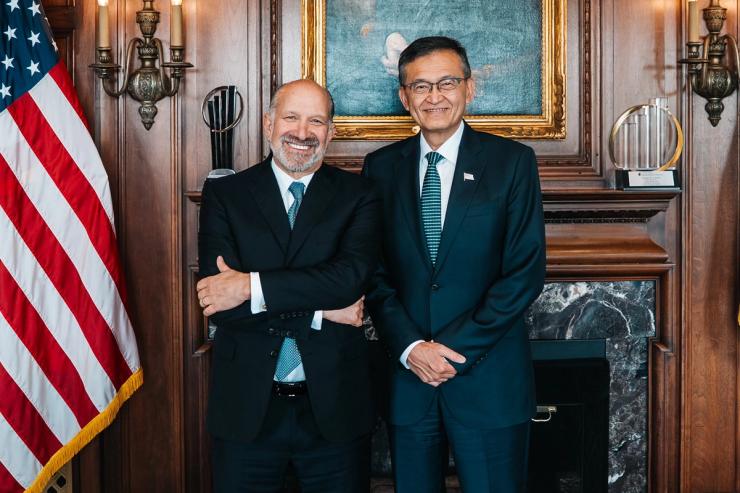The News
Trump’s move to take a 10% stake in Intel won’t be the last of its kind — and it has the potential to upend shareholder primacy in a big way.
The government has shifted from privatizing public assets (sell the national parks!) to nationalizing private assets to fund Trump’s pet project: The stake is a “down payment on a sovereign wealth fund,” NEC director Kevin Hassett told CNBC yesterday.
What would be in that fund? The White House also picked up a $400 million stake in rare-earth miner MP Materials earlier this year and has its strategic bitcoin reserve, stocked with crypto seized from criminal prosecutions. Its efforts to sell off national holdings like land and art — to “monetize the asset side of the US balance sheet” — appear to have slowed, and it hasn’t yet publicly put a value on the “stewardship” assets it holds in public trust.
So what’s in it for the taxpayer? It’s an open question whether Intel can indeed become America’s national champion in the global AI race, as Semafor’s Reed Albergotti noted. The company lags behind competitors — that was part of the reason Lip-Bu Tan was brought in to replace Pat Gelsinger — and customers aren’t willing to risk building their chips with a competitor that isn’t on the cutting edge. Taxpayers are “more like distressed asset investors getting equity in companies that have been on the rocks,” The Argument’s Jordan Weissmann noted. Still, the stake, which makes the US government Intel’s largest shareholder, may give it some breathing space to orchestrate its second big turnaround effort in recent years.
In this article:
Rohan’s view
If the government does keep taking stakes in public companies, it could be a major game changer for activist investors, who count on every shareholder vote to push for changes. That’s because Intel’s agreement guarantees the government will use its 10% stake to support the company in all shareholder votes, except for for “limited exceptions” — namely, a shareholder push to breakup Intel’s relationship with the government or break the law.
That’s bad news for activists, but it should also worry regular shareholders. Boards have a fiduciary obligation to make shareholders money. That’s a complicated enough dance at the best of times. If the government rock clashes with the shareholder’s hard place, which will Intel’s directors prioritize?
Adding the government to the mix means a board might suddenly find itself emboldened to make decisions that shareholders disagree with thanks to the protective halo of a government stake — or worse, feel obliged to appease the government at the expense of shareholders.
Notable
- Owning a company is messy. Owning a chipmaker is a whole different game, two former CHIPS Act officials wrote in a WSJ op-ed.
- Government intervention on this scale hasn’t happened in the US since the global financial crisis.



